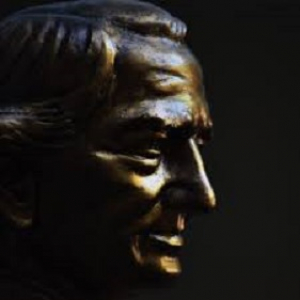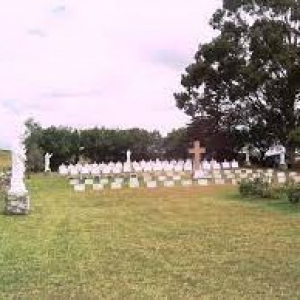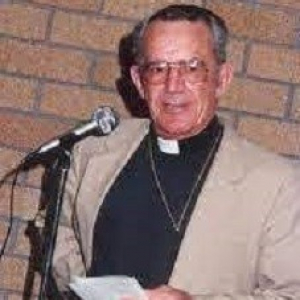Peter MALONE
Jules Chevalier, the road to sainthood (long and winding)
Jules Chevalier, the road to sainthood (long and winding)
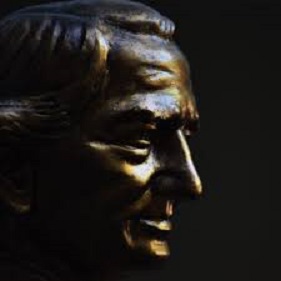
The recent General Bulletin highlighted some of the steps.
History of the cause:

- 19 July 2011: Nihil obstat of the Congregation for the Causes of Saints (Prot. N. 2840)
- From 25 May 2012 to 08 December 2013: Celebration of the Diocesan Enquiry in the Diocese of Bourges.
- 12 December 2013: Transmission of the Acts of the Diocesan Inquiry to the Vatican
- 16 December 2013: Opening of the Roman phase of the Cause of Beatification of the Servant of God Jules Jean Chevalier.
- 18 October 2014: Letter from Fr. Boguslaw Turek, Undersecretary of the Congregation for the Causes of Saints, on the need to proceed with an additional investigation in view of the Validity of the Acts of the Diocesan Inquiry.
- 11 March 2016: Decree on the Validity of the Acts of the Diocesan Inquiry. This Decree of Validity is accompanied by a note signed by Archbishop Marcello Bartolucci, Secretary General, asking the Rapporteur of the Cause to contact the Congregation for the Doctrine of the Faith to consult certain "problematic" writings of the Servant of God.
- 28 October 2016: Announcement of the appointment of Fr Maurizio Tagliaferri, as Rapporteur for the drafting of the Positio on the life, reputation for holiness and virtues of the Servant of God Jules Jean Chevalier.
Where we are :
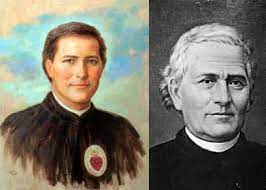
Father André Bohas, msc, is the collaborator of the Postulator General Father Jean-Jules Chassem, msc, of the Congregation of the Missionaries of the Sacred Heart of Jesus.
In October 2019, the part of the Positio called Summarium Testium consisting of the formatting and study of the testimonies of the two diocesan investigations was completed. The editing of the reports of the Theologians and the Historical Commission presented at the two enquiries was also completed in October 2019. The work continues with the preparation of the abridged documented biography of the Servant of God. In October 2020, the Rapporteur Prof. Don Maurizio Tagliaferri asked Fr. André Bohas to begin the abridged documented biography with a first chapter that should specify the political, historical and ecclesial context of the 19th century during which the Servant of God Jules Jean Chevalier lived, attaching at the end of the chapter the most important authorized documents that support the understanding of what will have been thus developed throughout each chapter. Historical research and numerous readings were necessary for the study of this political, historical and ecclesiastical context and its writing was the object of the work of this year 2021 (from November 2020 to August 2021).
What still needs to be done
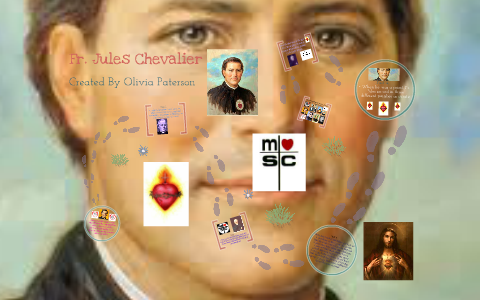
It then remains to continue writing the documented biography of the Servant of God, from his birth to his death in a chronological presentation, presenting his activities and works. The most important documents collected during the diocesan investigation (in particular the 737 letters selected from a total of 2737 letters and other documents collected in the second volume of the Public Copy) will be inserted at the end of each chapter according to the content of each chapter of the biography. Some documents not used in the biography will then be presented in the Summarium Documentorum.
Some specific problems that have been raised about the life and writings of the Servant of God and that require study and response will be inserted in another part of the Positio called Selected Questions (especially those found in the file of Fr. Chevalier's file and consulted at the Holy Office on devotion to Our Lady of the Sacred Heart, on the statue of Our Lady of the Sacred Heart, as well as the relations with Fr Ramière and Fr Dehon, the questions raised in the Report of the theologians who studied the books published by Fr Chevalier).
Finally, the last part, called Informatio, will present in the Positio the path followed by the Servant of God to reach evangelical perfection and his permanent state of virtue, a presentation of the heroic exercise of the virtues (theological and cardinal, the auxiliary virtues as a religious and particular virtues) and his reputation for holiness.
When this work is completed, the Positio will then be studied by theologians (from Roman universities) chosen by the Congregation for the Causes of Saints, and then, based on the results of their research, a group of cardinals also chosen by the Congregation for the Causes of Saints will study the Positio.
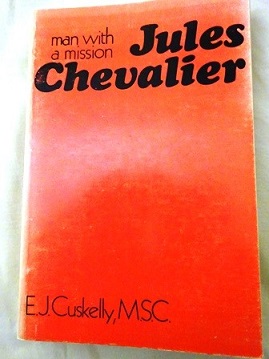
To all of them, theologians and cardinals, a copy of the book by E.J. Cuskelly, msc, "Jules Chevalier, the man and his mission - 1824-1907", will be given as a supplement to the abridged documented biography. After this long process, if all this work is positive, the results will be presented to the Holy Father by the Prefect of the Congregation of the Causes of Saints. The Pope will then be able to declare our founder, the Servant of God Jules Jean Chevalier, "Venerable".
Let us not forget that for our founder to be declared "Blessed", it is necessary to obtain through his intercession a presumed miraculous cure which will also be studied in another Positio on the miracle. The same applies to the process of Canonization.
It is therefore important that at this stage, with many steps still to go, all confreres and members of the Chevalier Family throughout the world (in their communities, in the parishes, movements, prayer groups, or schools where we minister...) pray and invite prayer intensely, persistently and tenaciously through the intercession of our founder, Servant Jules Jean Chevalier.

Let us not forget to send in writing to the Postulator General, Fr. Jean-Jules Chassem, msc, our testimonies of graces received through the intercession of the Servant of God.
| André Bohas, MSC
(Province of France—encharged for the Cause of our Founder)
All Souls Day, MSC History and Memories: 50th Anniversary of Confreres.
All Souls Day, MSC History and Memories: 50th Anniversary of Confreres.

Information from Jim Littleton: Brotherhood in Mission, Deceased Missionaries of the Sacred Heart, Australia, 1882-1991.
February 14th, Harold Bridgewood
Novice master, 1923. General Councillor, Rome, 1926-1938. Later years in retirement at Croydon, very well-known by many of the older members of the province.
August 13th, Bill McCarthy

Teaching at Douglas Park, assistant to the novice master. Working in the Northern Territory for many years, then parish work. Retirement at Kensington – and many anecdotes told about him.
August 2st, Andy Smith

Royal Navy, 1919, RAN, 1920, reaching Petty Officer rank. 1930, after profession, to Darwin two mission boats, St Francis, Margaret Mary, for 12 years. At the outbreak of World War II, he reenlisted, Sub-Lieutenant, working with the St Francis, which was taken over by the Navy, he and the aboriginal crew remaining in her as Naval personnel. Carrying supplies, piloting naval vessels. In 1944, took the mission vessel, Waimana, from Port Moresby to Rabaul, operating there for two years, then in Eastern A poor, based on Samarai, until 1969.
September 11th, Harry Reid.
Studied in Rome, chaplain during World War II, first rector of Chevalier College, founder of the Japanese mission.
Some Significant November Days for the Chevalier Family, 2021
Some Significant November Days for the Chevalier Family, 2021
E.J. Cuskelly, Superior General, see November 12th.

And, the beginning of the Novena to Our Lady for the founding of the congregation, November 30th
2 November, 1964
Father Karl Maria Weber was killed in the diocese of Ikela. (Zaïre at that time, now Democratic Republic of Congo). In this period of upheaval, 13 Sisters, 7 Fathers and 2 Brothers were abducted by the rebels.
4 November, 1979

The first 2 Japanese MSC, Makino Makoto and Sadami Takayama, make their first profession. The first FDNSC, Akie, made her perpetual profession 17 March 2012.
5 November, 1880
The MSC Community is expelled from Issoudun and the doors of the Basilica are sealed. Father Piperon and the novices at the time find a new home in "Huize Gerra" Haaren, The Netherlands. They arrive 12 November, 1880.
5 November, 1953
Bishop Alain de Boismenu dies at Kubuna, Papua New Guinea.
12 November, 1969

Father Eugene J. Cuskelly is elected Superior General of the MSCs (1969-1981).
Cuskelly is the author of Jules Chevalier Man With a Mission, and today he is well appreciated for his response to Vatican II for all congregations to return to their roots and charism. He re-discovered the person of Jules Chevalier for the Chevalier Family and, with his council, introduced the now globally-used-expression "Spirituality of the Heart".
13 November, 1892

Bishop Henri Verjus died in his birth-place in Oleggio, Italy. He was ordained on 1 November, 1883, and in the short period of time between his ordination and death, he established the mission on Yule Island, PNG, and was ordained Bishop at a very young age.
14 November, 1923
The FDNSC Generalate, Mother Gertrude and assistants, return to Issoudun after an exile of 17 years in Belgium.
19 November, 2016

John Ribat MSC, Archbishop of Port Moresby, named a Cardinal.
20 November, 1920
The first 6 novices of the Handmaids of the Lord, founded by Monsignor de Boismenu, make their vows at Kubuna, Papua New Guinea.
21 November, 1875
Father Victor Jouët arrived in Rome, where he remained until he died in 1912.
He was first buried in a family tomb in Marseille, France. In 2003 his remains were transferred to the Crypt in Issoudun, where he now rests with Father Chevalier and other early founding members.
24 November, 1897
Father E. Bontemps, MSC, founder of the mission in the Gilbert Islands, today known as Kiribati, died on the island of Nonouti, Kiribati.
29 November, 1932
The first four MSC Sisters depart Germany for China!
30 November, 1854

Father Chevalier and Father Maugenest begin their novena to Our Lady. This novena begins a most remarkable story of faith, courage and passion ~
A passion for the Heart of Christ!
A passion for the heart of humanity!
A passion for mission to the ends of the earth!
We believe reading is good for you
We believe reading is good for you

Our dependence (good and bad) on Social Media reminds us that we are reading less, especially books. While lockdown meant that we watched a lot of streaming films and series, we hope that there was a lot of reading going on!

Some more encouragement





Redemption Day
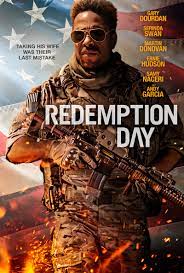
REDEMPTION DAY
Morocco, 2021, 99 minutes, Colour.
Gary Dourdan, Serinda Swan, Andy Garcia, Brice Bexter, Martin Donovan, Ernie Hudson, Robert Knepper, Sami Naceri.
Directed by Hicham Hajji.
This is a terrorist action story, most of the action taking place on the Moroccan-Algerian border. The writer-Dir is from Morocco.
The film is one of those stories where the action-hero of the day, whether it be Stephen Seagull, Jean-Claude van Damme, Arnold Schwarzenegger… Might have featured. This time it is the Canadian actor, Gary Della Dan. He is seen initially, in Syria, on a mission of accompaniment which is ambushed and he offers a heroic defence. The experience has consequences, especially in nightmares, when he returns to the states. He has a daughter, and his wife is an archaeology expert who gets a grant to explore a hidden city in Morocco.
The action moves quite quickly – not always plausibly. The wife and her group are abducted by Algerian terrorists, associated with Isis, when they inadvertently cross the border. They are held, tortured, and a ransom demand. When the hero gets the news, he immediately flies to Morocco, makes contact with a friend with whom it worked in the past, deals with the American Ambassador and the head of the CIA (Andy Garcia and Martin Donovan), almost immediately goes on a mission and rescue, getting local help, infiltrating a mocks, getting into the terrorists compound, confrontations. In the meantime, the American Pres is persuaded to endorse a covert operation, troops and helicopters. The expected battles take place, the confrontation with the terrorists, the rescue.
There is a critical epilogue to the film where the CIA are seen in conversations with oil interests and an indication that they have been plot complications during the rescue operation.
- Title? The rescue mission? Achievement?
- Popular ingredients of an action show, military operations in Syria, abduction in Morocco, Algerian terrorists, diplomatic interventions, personal mission, action and rescue? The writer-director and his Moroccan background?
- The opening in Syria, the troops, the walk through the camp, introduction to Brad Baxter, the mission, the ambush, his heroism? His recurring nightmares and the action sequences?
- Brad, at home, his marriage to Kate, their daughter, the domestic scenes? His tensions, dreams? Her being an archaeologist, her speech, the commission to go to Morocco, willing to stay home, later revealed to be pregnant? In Morocco, the team, going to the site, the ambush, the shooting, the group being taken hostage?
- The terrorists, their leader, connections with Isis, money issues? Playing the Moroccan government, the Algerian government? The United Nations vote? The hideout, sinister? The prison cells? The various henchman? The traitor who was the driver, his being shot by the leader? The cells, Kate, tied up, the sympathetic young man learning English from American movies, his later help? The food? Being dragged to other cells? The Frenchman, in the truck, fear? His later being tortured? Kate and the Frenchman and the video? His throat being slashed on video? The demand for $10 million?
- Brad, hearing the news, television, not telling his daughter, leaving her in the care of his father? Flying to Morocco, the visit to the ambassador, meeting Fitzgerald, his friendship with Laalej, their past and Brad saving his life? The discussions, the plan?
- The ambassador, calm and cool, observations on his job? Fitzgerald, the CIA, plans? Objections? His having to collaborate? The later revelation at the end, the CIA collusion with oil powers? The contact with the president and his advisory staff? The president and his disturbed decision about the rescue?
- Brad, with Laalej, driving, getting help to cross the border, disguise, at prayer, the weapons, the invasion of the house, the shootings, the rescue of Kate, the confrontation with the leader, their headquarters in about, Neo and the computer, the transfer of the money? The confrontation with the guns, action, the death of the leader?
- The rescue, the troops coming in, fighting, rescue? Kate and Brad reunited?
- The postscript, Fitzgerald and his meeting, the photos being taken? Knowledge and Moroccan security?
- Popular action show? Plausibility? Credibility – or not?
Archive
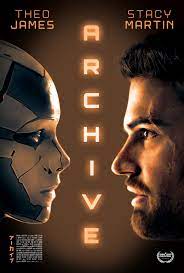
ARCHIVE
US/UK, 2020, 109 minutes, Colour.
Theo James, Stacy Martin, Rhona Mitra, Peter Fernando, Lia Williams, Toby Jones, Richard Glover, Hans Peterson.
Directed by Gavin Rothery.
Archive will remind some audiences of other science fiction films focusing on women, Mac and and Her.
The setting is 2038, a remote elaborate plant in the wintry forest of Japan. The scientist in charge, played by Theo James, has been experimenting with robotics, even creating to robots who can speak and work in the laboratory (the robots becoming more personalised with their development). However, the main mission is to draw on archives of memory which can be transferred then to a robot – in this case the scientist’s wife.
There are mysterious interests, the Dir of the robotics project and her threats, visits from inspectors and their armed robots, a contact who is in control of risks.
The film progresses as might be expected, the scientist alone, the visits, the threats? His dealings with the two robots – the second one becoming rather jealous of his attention to the robot of his wife? His communication with his wife, the development of the robot – and the many memories of her, especially a car crash.
There is a completely unexpected twist in the last minute – not particularly necessary for the development of the plot but having the effect of completely altering audience perspective on what they have been watching.
- Science-fiction? Science fantasy? 2038?
- The technology background, robotics, the archives of human consciousness, transferral to robotics?
- The site of the laboratory, snowy forest, the chasm and the bridge, the waterfall in the river? Japan? The interiors of the laboratory, vast and technological? The flashbacks, ordinary life, the car and the crash? The musical score?
- The credibility of the premise? Death, life after death, the retaining memories, contact with the memories, voices, consciousness? Their being transferred?
- George, the introduction, running, in the laboratories, with the robots, the first, primitive, no arms, yet a consciousness, large and cumbersome? The second, voice, capacity for fulfilling orders, voice, consciousness, work in the laboratories, watching the cartoons, the niche for both robots? Work, collaboration, discussions with George? Going out into the winter? Some jealousies with the Jules robot? Touches of sabotage, confronted, going out to the river, drowning?
- George and his mission, the secrecy, the contacts with Simone, her being in charge, threats? The visit by Sinclair and Melvin? Their armed robots? The purpose of visit? Sabotage? George and his later visit with the authority and the discussion about risks? The new equipment? Physical communication, communication by screen?
- George, his mission, his wife, memories of the past, the marriage, discussions in the car, going to Japan, the crash? The archive memories? His reconstructing the robot in her image, her consciousness, growing awareness, pain and suffering, reactions, growth, memories, her voice, movement? The dangers, the final confrontation, the electric links, her survival?
- George, his obsession, daily life, routines, the working of the laboratories?
- The twist at the end – unforeseen? Upending the synopsis? Credibility? For the drama, needed or not?
In the Gloaming
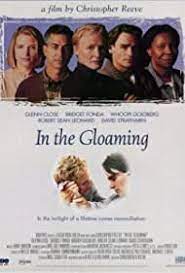
IN THE GLOAMING
US, 1997, 67 minutes, Colour.
Glenn Close, Robert Sean Leonard, David Strathairn, Bridget Fonda, Whoopi Goldberg.
Directed by Christopher Reeve.
In the Gloaming is a short HBO film of the later 1990s focusing on Aids. In a way, it is an interior piece, in the grounds of a mansion but also in the interiors of the house. It is dialogue-strong and could easily be adapted for theatrical dramatisation.
It is significant that the film has been directed by Christopher Reeve, popular star beginning from his presence as Clark Kent in Superman, presence in many dramas, and the victim of the riding accident which made him quadriplegic.
Robert Sean Leonard in a significance performance as a middle-aged man returning home from San Francisco to the east, dying of AIDS. He is welcomed by his mother, a fine performance from Glenn close. His father, with whom is not related particularly well, welcome to home, trying to initiate conversations and do the right thing. His played by David Stratton. The opening the film shows the mother playing with her two children, but focusing the attention on the young boy, her older daughter standing apart. And this is true as they are grown older, Bridget Fonda portraying the daughter who is now married but reluctant to bring her young son to visit his uncle because of AIDS. And there is a fine, tender cameo by Whoopi Goldberg as the nurse, especially a sequence where she encourages the mother to touch her son.
The title is a reminder of the Scots word for the quiet evening, sunset, a time when everything close down, time for reflection.
There are quite a number of films about AIDS in the 1980s and 1990s especially Early Dawn with Aidan Quinn as well is films about the investigations for scientific treatment of AIDS.
- The title, the tone, the Scottish evening, sunset, atmosphere, life slowing down? And the singing of the song? The symbol of the gloaming, for Dan and his life coming to an end?
- A film about AIDS, the experience of the 1980s, the films about AIDS in those years? The continuation into the 90s, people calm about AIDS, sufferers, the background of gay infected, illness and deaths?
- The screenplays strong on dialogue and limited locations? Able to be transformed into a piece of theatre?
- The titles of the months, time passing, the decline of the year into winter?
- The settings, the grounds, spacious and the home, the interiors? A comfortable, affluent family?
- The opening, Janet, the two children, playing with Dan, Anne standing apart? Setting the tone for the adult relationship? Dan and his mother’s favourite? 26 and her feelings of resentment, the touch of alienation?
- Janet’s story, memories of meeting Martin, love, her ambition to be the perfect wife and mother, her life’s expectations, years of marriage, the children, the comfortable home, her volunteer work, her love of the movies?
- Dan’s story, arriving home, his limp, illness, audience realising that he was dying? His face, disfigurement, AIDS? His mother receiving him, fussing over him, not wanting to leave the house? His father welcoming, asking questions, making suggestions, bringing the trophy to the room? The father and son unable to communicate? The visit from Anne, the tension between them? The nurse, her tender care of him? The importance of the conversations with his mother, about his relationship, about love, about his partner not having the endurance to be with him? Memories of the past, the gloaming, Janet singing Danny Boy? Arrangements for his funeral, his gradual decline? Quietly dying? His mother present and watching?
- Janet, in herself, putting herself down, reaction to compliments, the challenge to her marriage and relationship with her husband? Her urging him to communicate with Dan? The bedroom scenes in their conversations? With the nurse, the nurse explaining how to touch Dan, to connect the equipment? The effect on Janet?
- The nurse, a quiet Whoopi Goldberg, tenderness and care, devotion, treating Dan? The conversation about touch, the pulse, her explaining how Janet might touch her son?
- Anne, the visits, wanting to go out with her mother, trying to make contact, not bringing her son, the fear of AIDS, and not admitting this, her leaving?
- Martin, his own world and style, the tomatoes – a gift for his wife, trying to make conversation, the family meal, the reaction of each, his trying to get Dan to talk? Feeling alienated, trying to make contact? The nature of his relationship with Janet? The sad experience and the possibility of their communicating, his final tears and embrace with Janet?
- The pathos of the film about illness and dying? Christopher Reeve and his life experience, bringing a gentleness and tenderness to his direction? And the impact on the audience?
Coming Home in the Dark
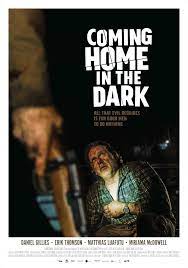
COMING HOME IN THE DARK
New Zealand, 2021, 93 minutes, Colour.
Daniel Gillies, Erik Thomson, Mariana McDowell, Matthias Luafutu.
Directed by James Ashcroft.
The title has two important themes indicated. The obvious one is the emphasis on the dark, this film being a very long, literal, journey into night. The expectations of coming home, especially with the introduction to the family, would be to their own home. But it is not.
This is a terror film. Some have categorised it is horror but it is, more accurately, menace and terror. And it is very effective in portraying menace and terror on the screen but also eliciting quite some terror and fear in the audience as it watches the characters and what befalls them. The film has received very good reviews and screenings at festivals. It is very effective in its creation of atmosphere, working on the conventions of the road movie, and, ultimately, raising significant issues for the audience to ponder.
The film was shot in the area around the New Zealand capital, Wellington. As it opens, we are in a car, an ordinary family going for an outing, mother and father (Erik Thomson and Mariana McDowell) and their relationship, boys squabbling in the back in the usual manner, stopping at the service station, passing through beautifully rugged countryside, ultimately arriving at the destination, going hiking, and enjoying a picnic on the riverside.
What could go wrong? And the film is the answer to that question.
Unexpectedly, in this remote area, two strangers wander in, one bearded, somewhat sinister (a sometimes quietly fierce performance from Daniel Gillies), the other, Tubs, thin and silent, Maori background (Matthias Luafutu). The sinister man introduces himself as Mandrake, a magician able to ring changes. Then some shock moments, so unexpected, dreadful, and the tone of the narrative of the film is changed.
Some commentators on the film remember A Clockwork Orange and the menacing and then violent intrusion of the thuggish Droogs. Others remember the story filmrd twice, a story of home invasion, menace to a family, The Desperate Hours (1955 and 1990). This is sustained menace to the family.
As the night advances and Mandrake and Tubs drive away with their captives, there are confrontations, attempted escapes, visit to the service station again, the husband using his wits, brutality towards his wife, what might be expected in this kind of threatening journey.
However, what is important in the screenplay and the portrayal of characters is Mandrake’s motivation in pursuing the husband. As they drive, there are interrogations, revelations about the husband’s past as a teacher – opening up more about the 1980s, a home for boys, the dreadful treatment that they received, the building of resentment, the growing angers as they grew older, vengeance preoccupying their attitude towards life.
As the tension grows, Mandrake decides to drive to the site of the home itself, eliciting some flashbacks, the audience understanding more and more what has happened in the past, and the challenge to the husband, a young man in those days on the staff of the institution, witnessing the sadistic behaviour of the teachers, challenged as to what he might have done, should have done?
Which is what is left for the audience to react to, to think about – and, in these days of the aftermath of Royal Commissions, investigations into physical and sexual abuse, Coming Home in the Dark is a film that dramatises what many of the abused have felt, feel, have survived but need some kind of acknowledgement, compensation, healing.
- The title? The littering gathering of the dark? The irony of the coming home? The home?
- A New Zealand film? Atmosphere? Story? History of orphanages and abuse?
- The settings, isolation, mountains, rivers, the sea? The beauty of the landscapes? The hiking? The picnic? The musical score?
- Introduction to the family, most audiences identifying with them, the father and his relationship with his wife, her being in command times, the two boys in the back, rivalries and fighting? Conversation, music disputes? Stopping at the store? The hiking, the beauty, the picnic? No suggestion of what was to come?
- The arrival of the two men, the family and wariness? Mandrake, explanation of his name? Tubs, appearance, silent? Sense of menace? The rifle? The reaction of the family, fear, on the ground, the shock of the shooting of the two boys? Tubs and the disposal of the bodies in the river? Jill being knocked unconscious?
- Mandrake, his appearance, personality, sinister, calm in his manner, controlled? Interactions and banter? Hoaggie and his nickname? Putting Jill in the car? Hoaggie?
- The mystery, the motivation? Seemingly random violence? Sadistic?
- Mandrake and the interrogation of Hoaggie, emerging that he was a teacher, the different schools, gradual revelation that he was at the boys’ home? The 1980s? Jill, the teacher, competent? Her not knowing the details of her husband’s past?
- The revelation about the treatment of the boys, the boy and the scraping of his tattoo? That Hoaggie was in the school, on the staff, early years, his standing by, his reaction, not intervening? The sadistic behaviour of the master? The behaviour of the rest of the staff? The lineups, military style, the treatment of the boys?
- Driving through the night, cars passing on the road, stopping at the service station, Hoaggie and his device of going to the toilet, the screw and schooling message on the toilet seat, explanations to the proprietor? His feigning a fall, putting the screw in the tire? Driving away, the return, Mandrake and his attack on the proprietor, bashing him?
- The confrontations with Jill, in the car, Hoaggie trying to reach out to touch her hand? His urging her to run from the station, the pursuit and taking her? Tubs, his silence, watching over them? The throwing herself from the car? The pursuit, at the bridge, throwing herself over, the question of whether she survived or not?
- The flat tire, the changing the tire, the offer of help? Hoaggie running, the lights, the vast oval, the joyride, the young people in the car, refusing to help him? Mandrake arriving, the confrontation, their getting out of the car, the being shot? One escaping?
- The final confrontation between Mandrake and Hoaggie? Hoaggi’s past taunting of Tubs at being on Mandrake’s leash? Mandrake, the shooting,
- the final stage of the journey, coming home in the dark, the glimpses of the institution, outside, the interiors, walking through the vast building, ruins, dilapidated? The flashbacks illustrating the boy, the scraping, his carving on the rock, memories? Hoaggie getting the rock, bashing Mandrake? The two confronting each other? Tubs walking in, looking at Mandrake, shooting him, walking away? Tubs stating that he hated the place?
- The audience experience of the picnic and the change, the shock of the boys’ deaths? Coping with Mandrake and his violence, Tubs, the gradual revelation of the story? The criticisms of the homes and the violent treatment? The building up of resentment, to anger, to revenge?
Stranger, The/ Harlan Coben
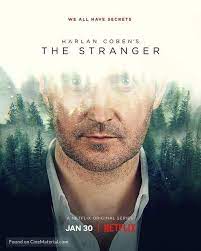
THE STRANGER
UK, 2020, 8X 50, Colour.
Richard Armitage, Shaun Dooley, Siobhan Finneran, Jacob Dudman, Misha Handley, Jennifer Saunders, Paul Kaye, Dervla Kirwan, Kadiff Kirwan, Anthony Head, Hannah John-Kamen, Stephen Rea.
Directed by Daniel O'Hara, Hannah Quinn.
Harlan Coben is one of the most popular American crime writers. He has been publishing novels since 1991. His novel, Tell No One, was adapted for the screen, the action transferred to France.
In recent years, there have been quite a number of miniseries adaptations of Harlan Coben novels. Interestingly, they have not been made in the United States. Harlan Coben each series himself has acted as one of the executive producers of each series. They are adaptations of stand alone novels although one in production, is an adaptation of one of his Myron Bolitar stories Stay Close.
Devotees of the novels will have no difficulty in enjoying the series.
This thriller is set in the UK, in a provincial city. The focus is on the anguish of a man whose wife disappears, suggestions of dishonesty despite her reputation as a prominent teacher and imported citizen in the town. Richard Armitage plays the husband, continued anguish (parallel with the hero of The Woods searching for his dead sister, parallel with the father searching for his daughter in Safe).
The plot is full of complications, gradual revelation is of interconnections with characters, a young woman whose mission it is to accost people, getting money so that she will not receive reveal the truth. She is the stranger (Hannah John-Kamen) This leads to a number of subplots – all with a very strong supporting cast.
- The adaptation of a Harlan Coben novel? British setting? Characters?
- The effect of the miniseries, the eight episodes, exposition, situations, mystery, plots and subplots, intertwining, suspense, resolution?
- The setting of the British country city? Location photography, the streets, shops, churches? Police precincts? Homes, school? The countryside at night, during the day? The visit to London? Atmosphere?
- The main focus on Adam Price, lawyer, marriage to Corrine, his two boys? The happy family? At school, Corinne as the popular teacher? The boys and sport? Their friends?
- The approach of The Stranger, her story for Adam, the information about Corrine, the fake pregnancies, the documentation, his search on the Internet? The range of material available for fake pregnancies? Confronting Corinne? Admitting the truth? Stating that it was more complicated? Adam and his shock, the clash with Corrine, the text, leaving? The rest of the series with Adam distraught, obsessed with searching for his wife, ends and means? The boys, their attachment to their mother, texting, searching, sad?
- The scene in the fields, drinking and drugs, youth? Dante fleeing naked? Collapsing? The mystery of the alpaca, decapitated, in the street, the head disappearing? The involvement of the three friends? The drugs? Mike and his hallucination, his killing the alpaca, the return, the head, taking it home, the police pursuit, his being arrested, interrogated, his explanations? Fears for Daisy and for Tom? The meetings, plans, explanations? Daisy’s younger sister and the videos? Her moods? The mother, her work at the school, concerned? Tom deceiving his father?
- The police, Joanne, detective, expertise, her age, separating from her husband, the reasons, his later appearing, wanting a reconciliation? Her friendship with Heidi? The cafe, the chats, the gift of the cake? Heidi, the cafe, her work and staff, her husband, her daughter? The plans for the 2 to go on holidays? The Stranger and the information, asking for money? Heidi going to see her daughter, their discussion, the revelation about her prostitution? Her return, Patrick Katz and his visit, challenge, shooting her knee, killing her? Joanne, her grief, the investigation?
- Joanne, Wes as her partner, his style, humorous, eating, supportive, his skills as a detective? And working with Katz on the case? Eventually everything coming together, Katz and his deception on the investigation, destroying the evidence, planting evidence, the revelation about his motivation and concern for his daughter, his wife and the illness, his connection with the financial fraud, being paid? Joanne and the confrontation, his wife, the gun, the police, his arrest, and the manipulation of his being blamed for Corinne’s death?
- Adam and Killane, the demolition of houses, Killane and his staying, having Adam as his lawyer, the revelation that Adam’s father was in charge of the company? Adam, his visits, getting cut Killane to find the missing women? The information? The buildup to the demolition, Killane and his appeal, Adam’s father and his visits and trying to persuade Killane? The discovery of the body, the revelation of the truth about the murder, Killane and the alienation from his child, his attempted suicide in hospital, the revelation that The Stranger was his daughter, her motivations, discovering that Adam’s father was her father?
- Doug Tripp, the cheery neighbour, Michael’s father, across the street from the prices, friendship, helping the search, car, stakeouts, at the soccer matches? The phone call with Corinne? The accusations about money stolen from the soccer club? The years that the group and put into it? Bob, the coach, angers, suspicions? Tripp involving him? The caretaker, autistic, noting all the details, helping, liking Corinne? The revelation of his being in the woods with the axe, his grudge against Dante, pursuing him?
- Dante, taken to hospital, the further investigation, his parents, Joanne’s visits, the friends at the hospital? His recovering, the interview and explanation of what it happened?
- The Stranger, her approach to Adam, the approach to Heidi and the demands for money, approaching Adam’s father, approaching the father whose son was taking steroids and his violent reaction? Her friend, driving her, the office, their home, the wall and the pictures? Her motivation, revealing secrets, thinking honesty was best? The consequences?
- Adam, his continued lines pursuit, tracking down the woman, pregnancies and her explanations? The fines, the location spotting, everybody going to the station, the aqueduct, finding Corinne’s phone? The later explanation with Doug Tripp? Adam and his nightmare of Corinne falling from the aqueduct?
- Olivia, her illness, at the bonfire, her lies, her motivations, her mother, Kaitz’s father? The friends, the discovery of the rubbish and the rat poison? Tom hiding in Kaitz’s car, the revelation about the poison, the effect on Kaitz?
- Kaitz and his connection with the businessman, the fraud, his being a client of Heidi’s daughter, the setup at the hotel, Kaitz and his intervention and spoiling the Sting?
- The final revelation, Doug Tripp and the true story, the robbery, Corinne finding out, his asking for more time, the force email to the family, taking Adam into the countryside, the grade, the truth? Adam shooting him? Joanne arriving? The covering of the truth?
- Adam and The Stranger, the various encounters, the pursuit into the railway yards? Finding her address, the confrontation, Kaitz following him, Adam getting free from the chains, the fight with Kaitz, The Stranger wounded, her partner killed? Her explanation to Adam about her revealing secrets, the secret of her father and their relationship?
- Six months later, Adam and the boys, learning to live with the situation, giant and her husband? The Stranger and her looking on?
Call, The/ 2021
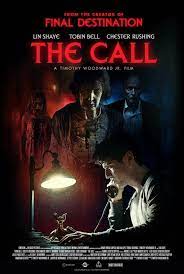
THE CALL
US, 2020, 97 minutes, Colour.
Lin Shaye, Tobin Bell, Chester Rushing, Erin Sanders, Mike Manning, Sloane Morgan Siegel.
Directed by Timothy Woodward Jr.
Lin Shaye and Tobin Bell have proven themselves as icons of American horror films, Lin Shaye in so many including the Insidious series, Tobin Bell so well-known as Jigsaw in the Saw series.
They play an elderly couple, she being tormented by a group of teenagers who consider her a witch. They come out to defy her and she confronts them. However, she kills herself, with a will stipulating that there be a phone in her coffin.
The first part of the film is very familiar from teenage school films, brash and bragging teenagers, not particularly interesting or sympathetic, a lot of trite goings-on.
However, they are summoned by the woman’s husband, the promise of money if they fulfil conditions in a will, make a call, simply, to the phone in her coffin. This leads to some flashbacks, the young people going back into that past, the harsh past, being trapped in their past. However, the latest visitor to the town gets a chance for some kind of repentance and new life.
A lot of the blogging comments are quite unfavourable – older fans of horror stories and of the two stars may well find it interesting variation on themes after they get over all the familiar stuff of teen life.
- Horror story? Moralising story?
- 1987, the atmosphere of the period, schools, teenagers, attitudes, brash? Tormenting Edith Cranston? The consequences?
- School, the town, introduction to the characters? The familiar material and attitudes of teenagers? Trite characterisations?
- Chris, the mystery about his past, relationship with his mother, her lover, her wanting to call him dad? At school, the encounter with Tonya, friendship, introduction to Zach and Brett? Hanging out with them? The fair, the competitions, the sideshows, fortuneteller?
- Going out to torment Edith Cranston, Tonya and the memories of her dead sister? Edith coming out, confronting them? Defying them? Consolation from her husband? His absence, hanging herself?
- Edward Cranston, loving his wife, summoning the teenagers, challenge, the will, the promise of money, the phone in the coffin? Greed, debating, decision? Going in order? Staying on the phone for a minute, leaving by the back door?
- The eerie atmosphere, the visuals of the house, the corridors, the room? Veering into fantasies of the past, the settings, surreal?
- Zach, brash, older brother, the call, Edith, his fantasy, memories of his brutal father, with his brother, cowering, the taunts of his father? The final punishment?
- Brett, following his brother, bragging? Going back into his past, getting out? Trapped?
- Chris, more straightforward, the revelation about his past, his relationship with his girlfriend, pregnancy, his abandoning her? Her appearance? His repentance?
- Tonya, the flashback to the story of the death of her sister, with Chris, the possibility of his saving her, the reappearance of his girlfriend?
- A ghost story, a horror story, vengeance story, punishment and redemption story?
